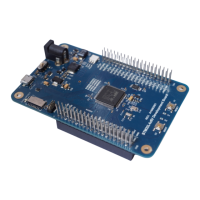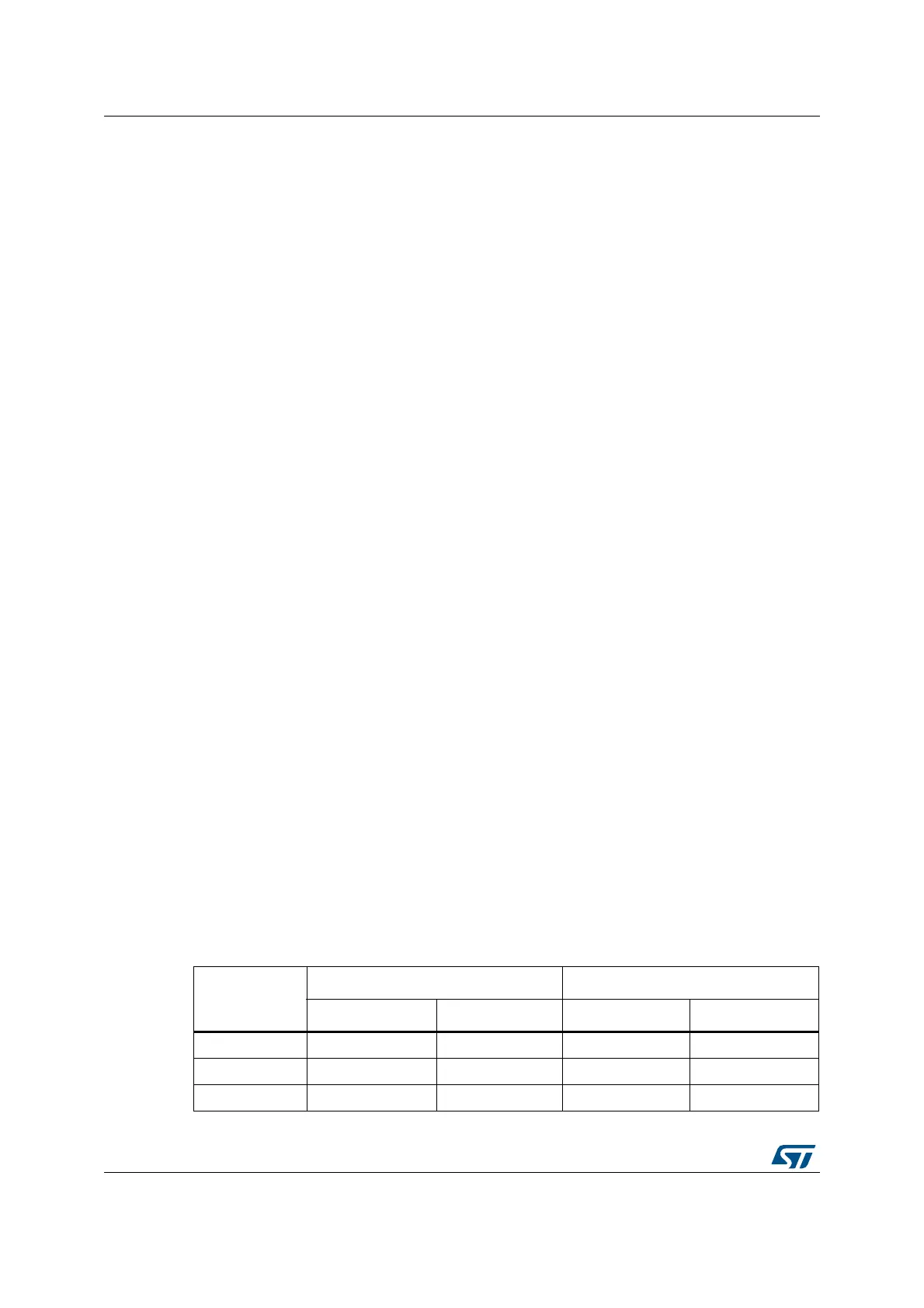Universal synchronous asynchronous receiver transmitter (USART) RM0351
1196/1693 DocID024597 Rev 3
36.5.5 Tolerance of the USART receiver to clock deviation
The asynchronous receiver of the USART works correctly only if the total clock system
deviation is less than the tolerance of the USART receiver. The causes which contribute to
the total deviation are:
• DTRA: Deviation due to the transmitter error (which also includes the deviation of the
transmitter’s local oscillator)
• DQUANT: Error due to the baud rate quantization of the receiver
• DREC: Deviation of the receiver’s local oscillator
• DTCL: Deviation due to the transmission line (generally due to the transceivers which
can introduce an asymmetry between the low-to-high transition timing and the high-to-
low transition timing)
where
DWU is the error due to sampling point deviation when the wakeup from Stop mode is
used.
when M[1:0] = 01:
when M[1:0] = 00:
when M[1:0] = 10:
t
WUSTOP
is the wakeup time from Stop mode, which is specified in the product
datasheet.
The USART receiver can receive data correctly at up to the maximum tolerated deviation
specified in Table 194 and Table 194 depending on the following choices:
• 9-, 10- or 11-bit character length defined by the M bits in the USARTx_CR1 register
• Oversampling by 8 or 16 defined by the OVER8 bit in the USARTx_CR1 register
• Bits BRR[3:0] of USARTx_BRR register are equal to or different from 0000.
• Use of 1 bit or 3 bits to sample the data, depending on the value of the ONEBIT bit in
the USARTx_CR3 register.
Table 194. Tolerance of the USART receiver when BRR [3:0] = 0000
M bits
OVER8 bit = 0 OVER8 bit = 1
ONEBIT=0 ONEBIT=1 ONEBIT=0 ONEBIT=1
00 3.75% 4.375% 2.50% 3.75%
01 3.41% 3.97% 2.27% 3.41%
10 4.16% 4.86% 2.77% 4.16%
DTRA DQUANT DREC DTCL DWU++++USART receiver′ s tolerance<
DWU
t
WUSTOP
11 Tbit×
-------------------------
=
DWU
t
WUSTOP
10 Tbit×
-------------------------
=
DWU
t
WUSTOP
9Tbit×
------------------------
=

